Looking Through Philosophy in Black
Global Critical Caribbean Thought
Series Editors:
Lewis R. Gordon, Professor of Philosophy, UCONN-Storrs, and Honorary Professor, Rhodes University, South Africa
Jane Anna Gordon, Associate Professor of Political Science, UCONN-Storrs
Nelson Maldonado-Torres, Associate Professor of Latino and Caribbean Studies, Rutgers, School of Arts and Sciences
This series, published in partnership with the Caribbean Philosophical Association, turns the lens on the unfolding nature and potential future shape of the globe by taking concepts and ideas that while originating out of very specific contexts share features that lend them transnational utility. Works in the series engage with figures including Frantz Fanon, CLR James, Paulo Freire, Aim Csaire, douard Glissant, and Walter Rodney, and concepts such as coloniality, creolization, decoloniality, double consciousness, and la facultad.
Titles in the Series
Race, Rights, and Rebels: Alternatives to Human Rights and Development from the Global South
Julia Surez Krabbe
Decolonizing Democracy: Power in a Solid State
Ricardo Sanin-Restrepo
Geopolitics and Decolonization: Perspectives from the Global South
Edited by Lewis R. Gordon and Fernanda Bragato
The Existence of the Mixed Race Damns: Decolonialism, Class, Gender, Race
Daphne V. Taylor-Garcia
The Desiring Modes of Being Black: Literature and Critical Theory
Jean-Paul Rocchi
Decrypting Power
Edited by Ricardo Sann-Restrepo
Looking Through Philosophy in Black: Memoirs
Mabogo Percy More
Looking Through Philosophy in Black
Memoirs
Mabogo Percy More

Lanham Boulder New York London
Published by Rowman & Littlefield International Ltd.
Unit A, Whitacre Mews, 26-34 Stannary Street, London SE11 4AB
www.rowmaninternational.com
Rowman & Littlefield International Ltd. is an affiliate of Rowman & Littlefield
4501 Forbes Boulevard, Suite 200, Lanham, Maryland 20706, USA
With additional offices in Boulder, New York, Toronto (Canada), and Plymouth (UK)
www.rowman.com
Copyright 2019 by Mabogo Percy More
All rights reserved . No part of this book may be reproduced in any form or by any electronic or mechanical means, including information storage and retrieval systems, without written permission from the publisher, except by a reviewer who may quote passages in a review.
British Library Cataloguing in Publication Information Available
A catalogue record for this book is available from the British Library
ISBN: HB 978-1-78660-938-0
ISBN: PB: 978-1-78660-939-7
Library of Congress Cataloging-in-Publication Data Available
ISBN: 978-1-78660-938-0 (cloth : alk. paper)
ISBN: 978-1-78660-939-7 (pbk. : alk. paper)
ISBN: 978-1-78660-940-3 (electronic)
 The paper used in this publication meets the minimum requirements of American National Standard for Information SciencesPermanence of Paper for Printed Library Materials, ANSI/NISO Z39.48-1992.
The paper used in this publication meets the minimum requirements of American National Standard for Information SciencesPermanence of Paper for Printed Library Materials, ANSI/NISO Z39.48-1992.
Printed in the United States of America
Preface and Acknowledgments
There is an accepted belief that philosophers lives are outrageously boring. This might be true to some extent when one thinks of the lives of philosophers such as Descartes, Kant, or Hegel. Fortunately, most philosophers are human beings before they become philosophers or remain human beings while being philosophers. Most of them, to use Nietzsches phrase, are human-all-too-human. The stories of the lives of Bertrand Russell or Jean-Paul Sartre, or Simone de Beauvoir or Angela Davis, for example, are very interesting both as narrative about the person and/or the philosopher. Fortunately, there are a number of famous philosophers who have told their life stories in books, and an even greater number that have had biographies written about them. For example, both David Hume and Jean-Jacques Rousseau are famous through their autobiographies. Simone de Beauvoirs Memoirs of a Dutiful Daughter is a classic. Others of the same calibre are Sidney Hooks Out of Step: An Unquiet Life in the 20th Century , Bertrand Russells The Autobiography of Bertrand Russell , A. J. Ayers Part of My Life: The Memoirs of a Philosopher , and of course, Jean-Paul Sartres The Words and War Diaries. This book is an autobiography of a black philosopher in apartheid and (post)apartheid South Africa and its academic institutions.
The first question that comes to any potential or actual readers mind of an autobiography is: Who is this person? What is so important about him/her such that the book deserves to be read? Why bother? For, in all honesty, it should perhaps be conceded that, at least during the last fifty or sixty years, no South African has attained anything of any particular global distinction as a philosopher. Indeed, no South African philosopher can claim to have enjoyed a reputation comparable or equal to, for example, Frantz Fanon, Anthony Kwame Appiah, Cornel West, Bertrand Russell, Kwasi Wiredu, Angela Davis, or, lately, Lewis R. Gordon, except Steve Biko and Mogobe Bernard Ramose. So, why bother with an autobiography? Who, in the first place, would be likely even so much as to read it? Surely, not many people. For, as one who has been associated with philosophy for well over forty years now, in this country and abroad, and in different times and in various capacities, as an undergraduate, postgraduate student, and special student, as a lecturer, senior lecturer, professor in all different grades, visiting scholar, senior research associate, and now honorary professor, I can certainly testify to the fact that at no time are present members of philosophy departments (more than 95 percent white) in this country likely to have an interest in any such project as the autobiography of a black philosopher. And why should they, anyway?
In the eyes of such philosophers there is either no black philosopher in the whole world or very few worth knowing and even reading. Besides, since this books title suggests racialization of philosophythat is, the race of a particular philosopherand since race is from Western traditional philosophical circles of no philosophical significance, the need to read such a text is diminished. To such philosophers, moreover, race is a very sensitive and messy issue not to be engaged, particularly in postapartheid South Africa, the house that Mandela built. For such philosophers, la Kwame Anthony Appiah and Naomi Zack, racism should not be discussed, precisely because it does not exist; it exists only if you are looking for it , in the same sense in which it is often said that only those who go looking for trouble find trouble.
For whom, then, is this book written? First, it has to be acknowledged that my choice of a certain aspect of the world (topic) determines in a large way the reader. Similarly, it is by targeting a certain readership that the author chooses her subject matter. Perhaps an appropriate response to the doubts expressed above would be through an appeal to Sartres response to the question: For whom does one write? Sartre mentions the case of Richard Wright, the African American novelists writings:
If we consider only his condition as a man , that is, as a Southern nigger transported to the North, we shall at once imagine that he can only write about Negroes or Whites seen through the eyes of Negroes . Can one imagine for a moment that he would agree to pass his life in the contemplation of the eternal True, Good, and Beautiful when ninety per cent of the negroes in the South are practically deprived of the right to vote?
Next page
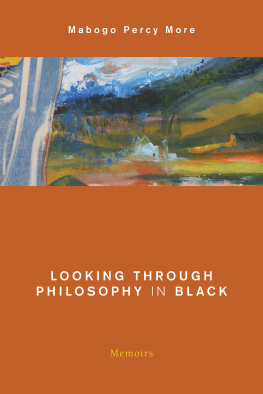

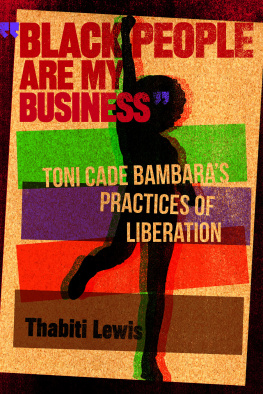
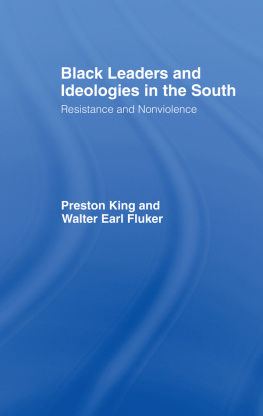
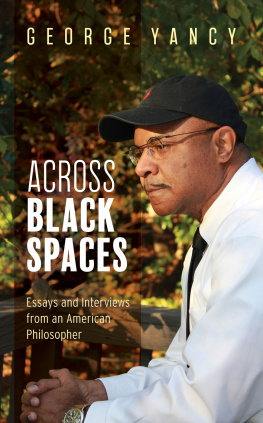
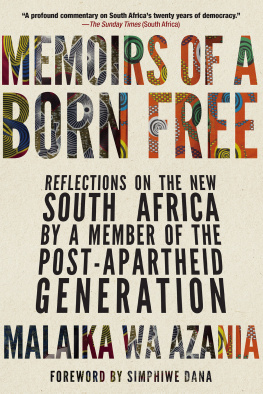
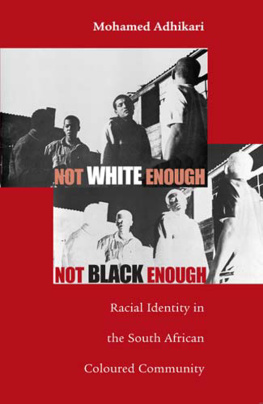
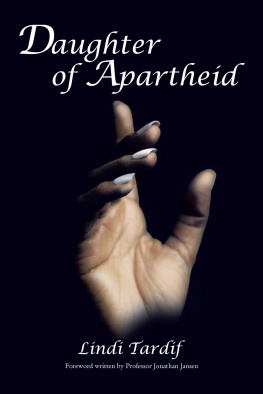
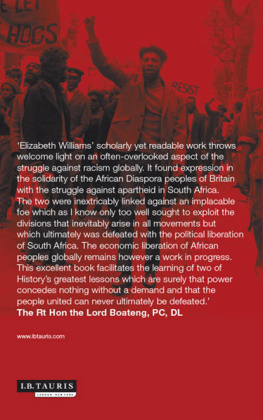
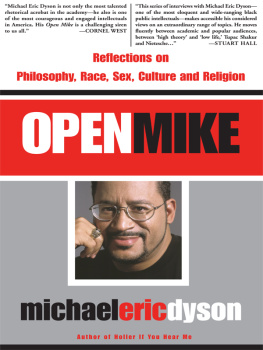

 The paper used in this publication meets the minimum requirements of American National Standard for Information SciencesPermanence of Paper for Printed Library Materials, ANSI/NISO Z39.48-1992.
The paper used in this publication meets the minimum requirements of American National Standard for Information SciencesPermanence of Paper for Printed Library Materials, ANSI/NISO Z39.48-1992.